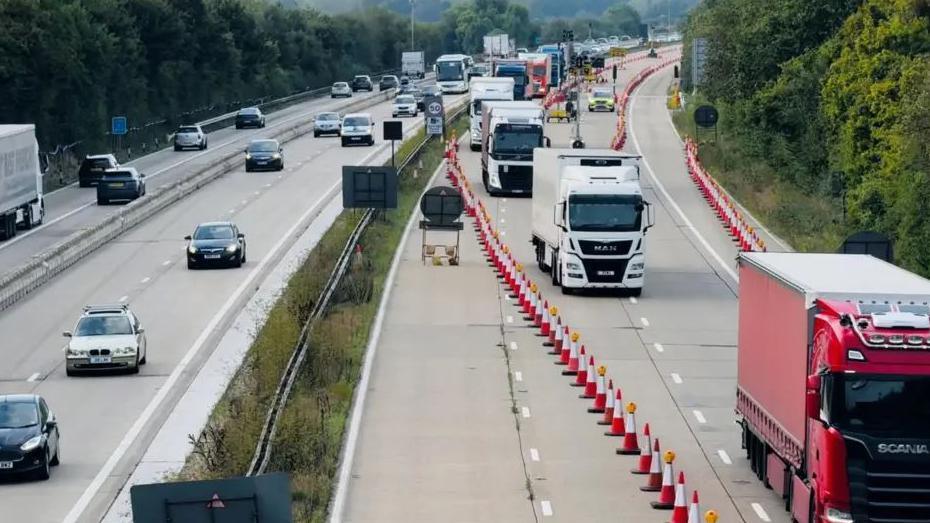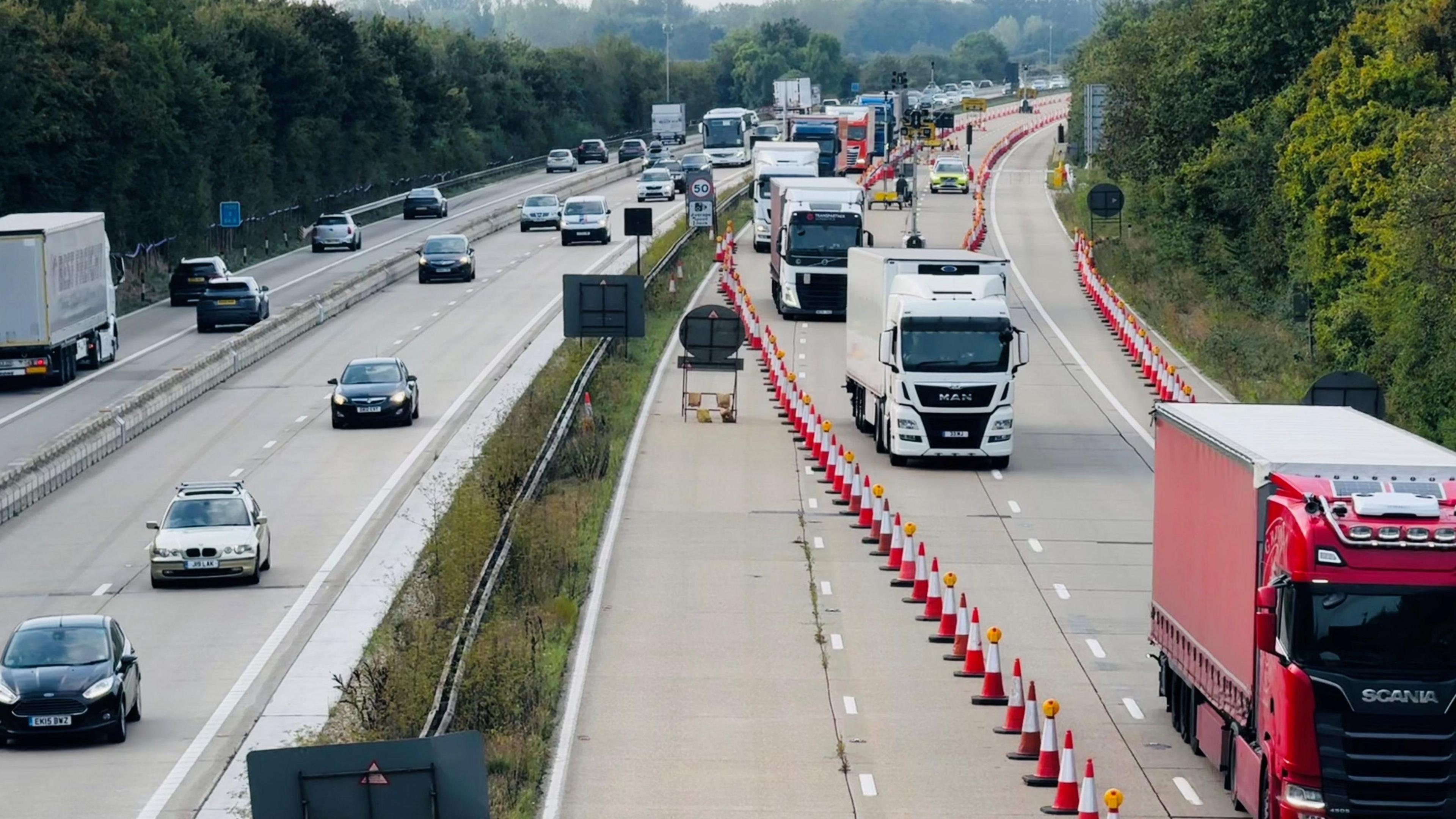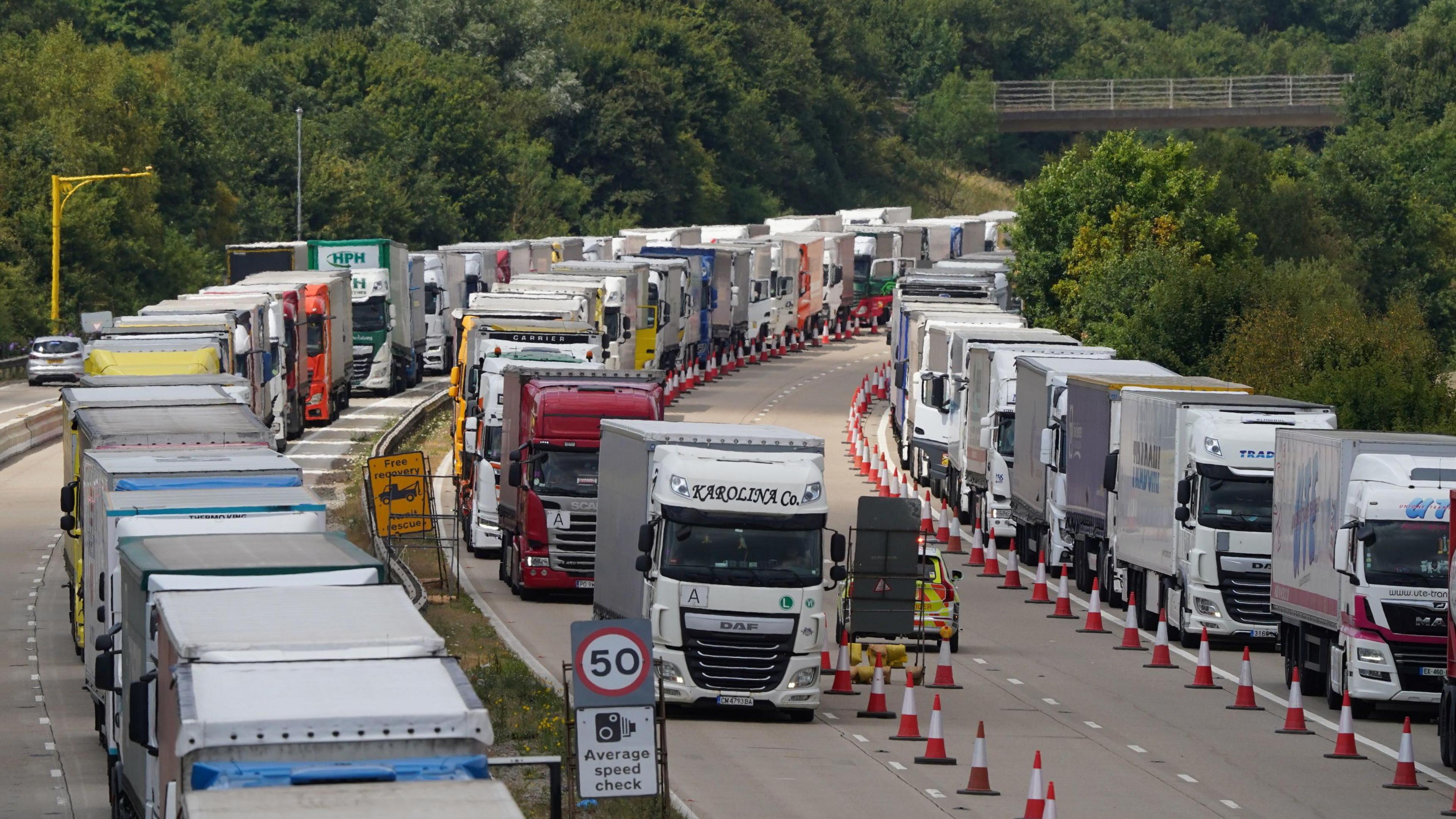Is Operation Brock worth the money?

Operation Brock sees lorries heading to Dover queue on one side of the M20
- Published
Operation Brock is the traffic-holding system for lorries queueing to cross the English Channel that has divided opinion since its inception.
Those behind the scheme say it saves surrounding roads and communities from being impacted whenever there are delays at the Port of Dover or Eurotunnel.
But critics of the M20 contraflow say it is too expensive - the cost of deploying it ranging from £100,000 to £250,000.
A BBC Freedom of Information request to National Highways revealed Operation Brock cost more than £2.7m to roll out across 10 occasions between 2019-2024.
In that time, it cost between £795,000 and £175,000 each time the system was put in place.
Created by a group of local authorities called the Kent and Medway Resilience Forum (KMRF), Brock sees Dover-bound lorries queue on one side of the motorway while the other carriageway is split between traffic travelling in both directions.
Debuting in 2019, it has since been set up between junctions eight (Maidstone) and nine (Ashford) during periods of anticipated high traffic, such as public holidays and major events.
Most recently rolled out for the May Bank Holiday weekend, it was due to be removed overnight on Tuesday having failed to win over some Dover residents.
"Saturday morning was chaos," said Nikki Bushell from Aycliffe.
"A lot of the lorries end up blocking key routes and roundabouts and nobody can get out.
"When it works it's great, but when it doesn't it's hell for local residents.
"Something more needs to be done, especially when it costs that much each time."
Robin Burkhardt, who used to run an antique shop on Snargate Street, said heavy port traffic "destroyed his business".
"We had to close up last December because everyone ended up staying away from the area - it caused the town to suffer," he said.
Christine Mitchell, who lives along the M20, said when Brock was in place there was disruption on the roads and lorries were "thundering through" residential areas.
She said: "I think it's an absolutely disgusting waste of money and quite honestly a sledgehammer to crack a nut."
Ms Mitchell said a better solution "should have been put in place much earlier".
"It's not doing what it should do, and that's keeping Kent running," she added.
A spokesperson for the KMRF said the decision to use Brock, which also involves Kent Police, Kent County Council and National Highways, was "driven by intelligence showing increased cross-Channel bookings for tourist traffic".
Simon Jones, KMRF strategic lead for border disruption, added that it was never done "without having clear data of increased border crossings to inform our planning".
He said: "Until the government agrees permanent, long-term solutions to tackle disruption on Kent's roads and delays at the border during busy periods, Operation Brock is the only option available."
A National Highways spokesperson said although it was "unfortunate" that a system had to be put in place, "without one we would be unable to maintain the flow of traffic around Kent whenever there was a disruption to travel across the English Channel".
They added: "Operation Brock may be an inconvenience, but it is better than us closing the M20 in its entirety to safeguard the local authority roads and surrounding towns."
Follow BBC Kent on Facebook, external, on X, external, and on Instagram, external. Send your story ideas to southeasttoday@bbc.co.uk, external or WhatsApp us on 08081 002250.
Related topics
Related stories
- Published15 December 2024

- Published23 December 2024
